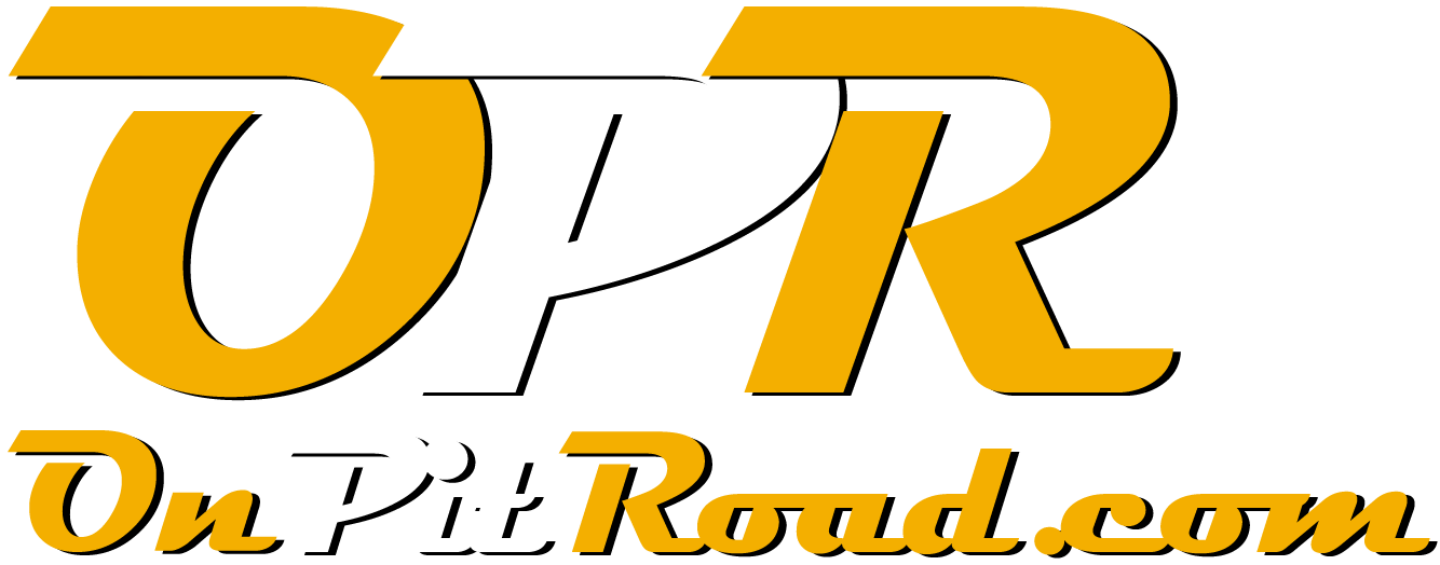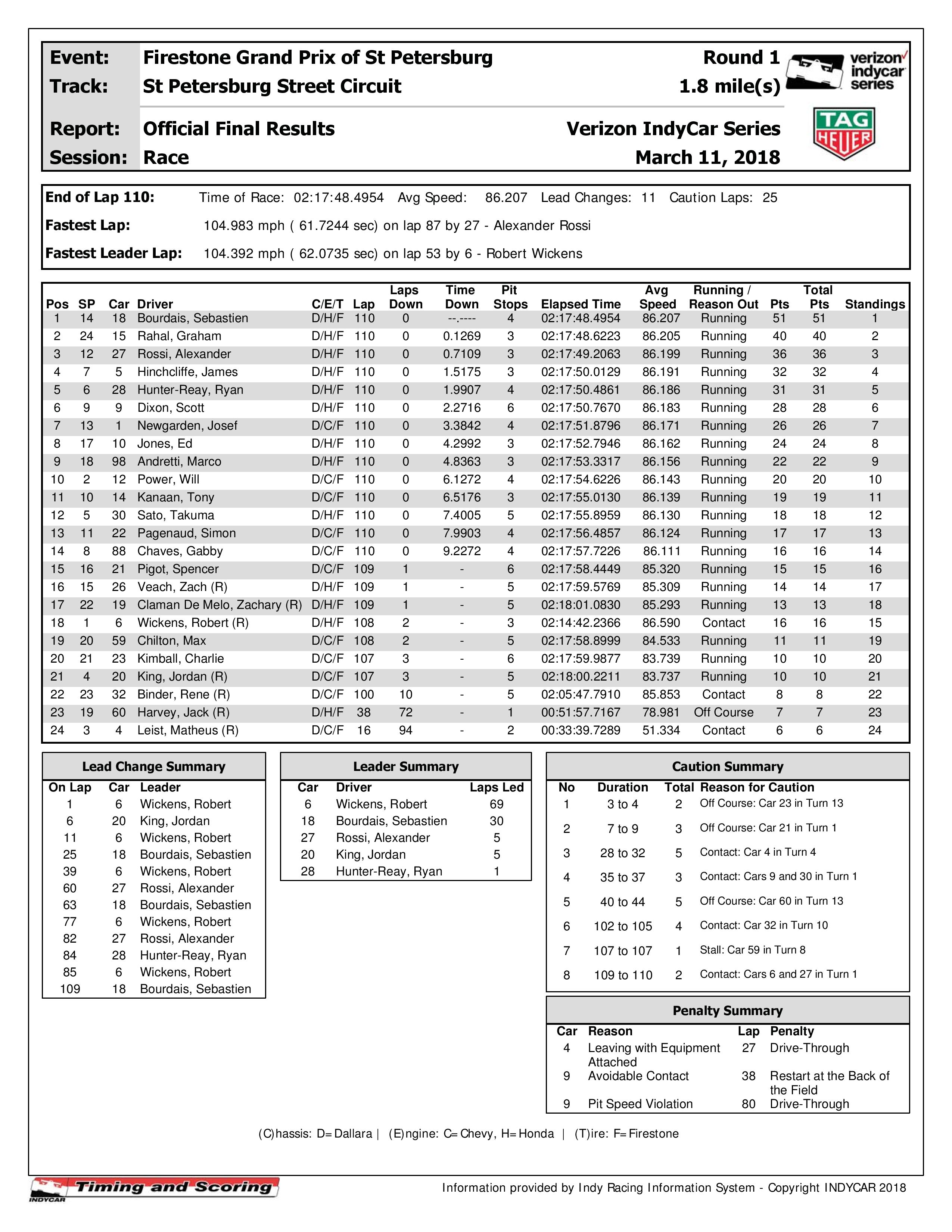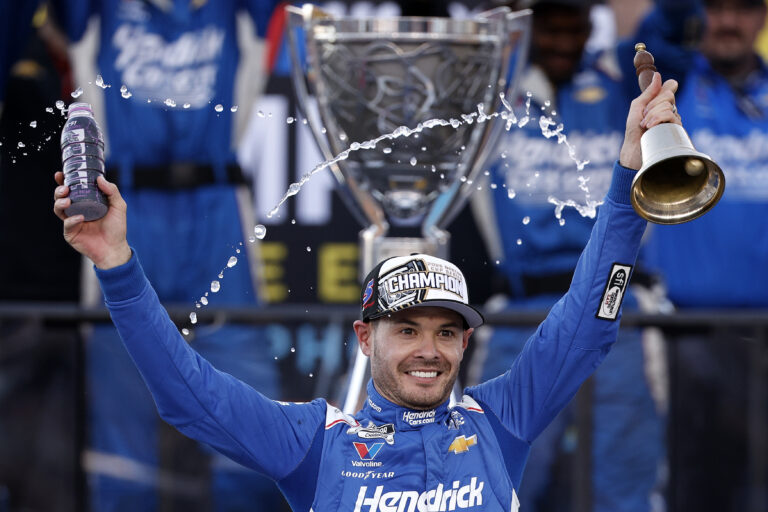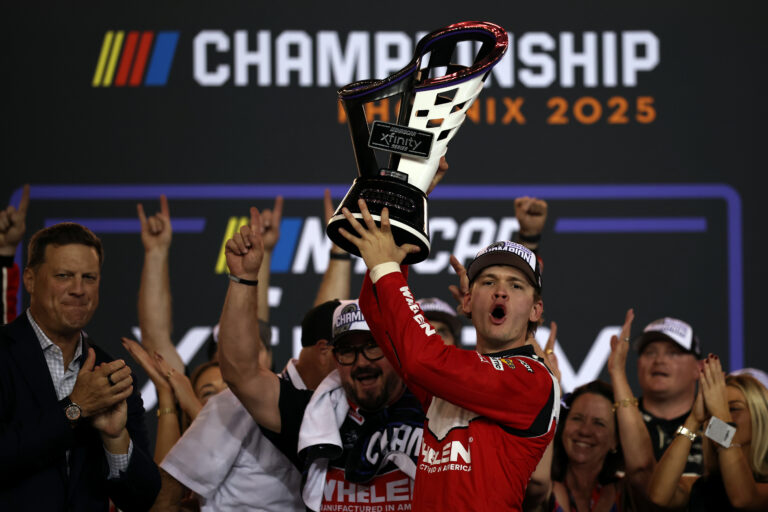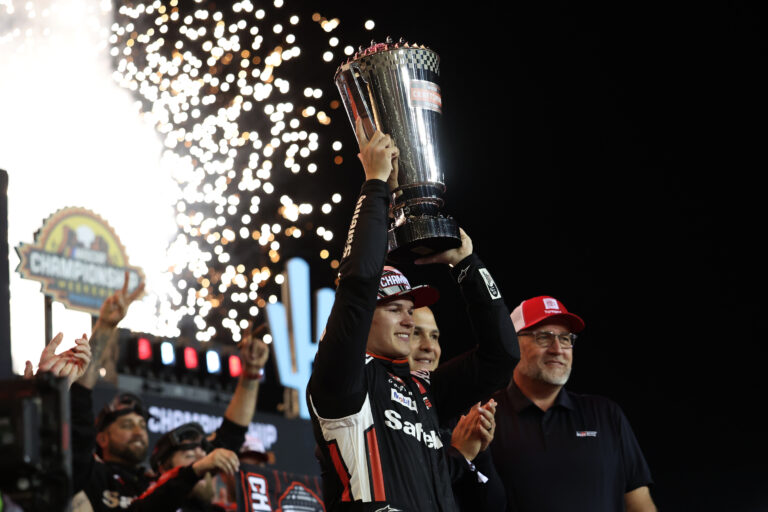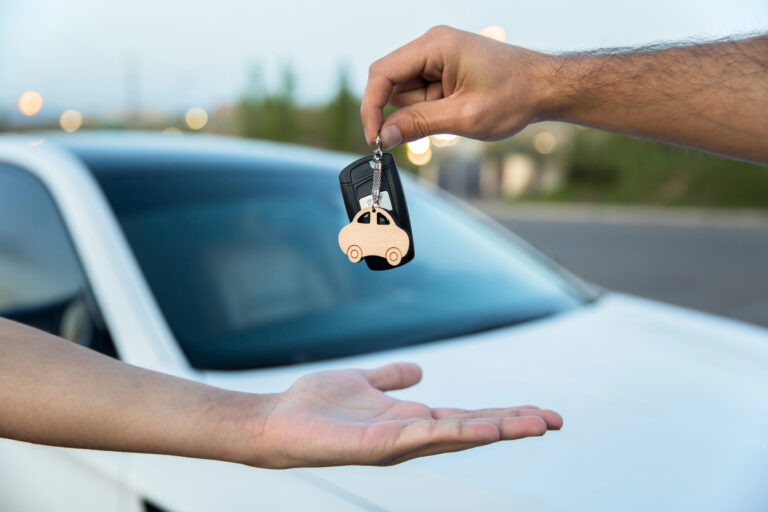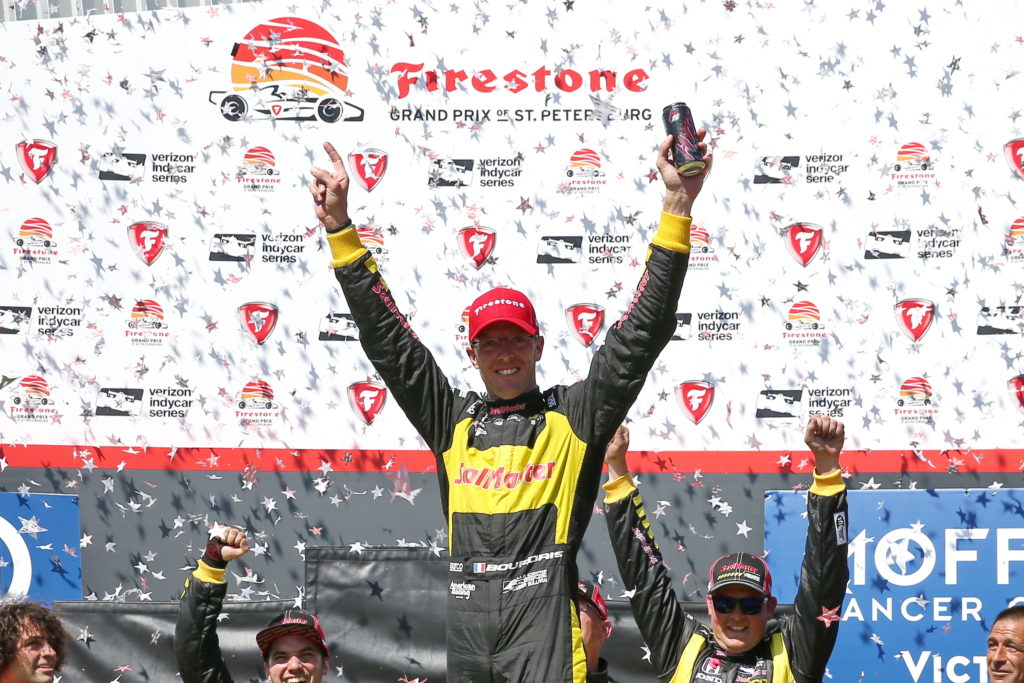
Photo Credit: Chris Jones/IndyCar
ST. PETERSBURG, Florida – A new era of racing was expected to deliver the unexpected. That it certainly did here today.
Sebastien Bourdais won the season-opening Firestone Grand Prix of St. Petersburg when the two drivers in front of him collided on a restart with two laps remaining. The result was Bourdais’ second consecutive victory on the streets of the city he now calls home and his first win since recovering from devastating injuries sustained last year while qualifying for the Indianapolis 500.
Some questioned whether Bourdais, now 39, would return to racing after sustaining a broken hip and pelvis in the high-speed crash at Indianapolis Motor Speedway in May. Instead, he rehabbed quickly and returned to the car in August at Gateway Motorsports Park. His perseverance was justified by today’s victory.
“It’s been bumpy, it’s been tough, it’s been everything in between,” Bourdais said. “But I’ve gotten a lot of support. It’s been pretty hard for myself but also for the people around me, especially for my wife (Claire). It’s quite an achievement to be able to restart the season and settle that right away and get back on the horse and win another one.”
It didn’t come without some controversy and luck. Series newcomer Robert Wickens was leading on a restart on Lap 108 of the 110-lap race when Alexander Rossi, who was second at the time, tried to overtake him by going inside into Turn 1. As Rossi pulled alongside Wickens, Rossi began to slide. Rossi’s No. 27 NAPA AUTO PARTS Honda made contact with Wickens’ No. 6 Lucas Oil Schmidt Peterson Motorsports Honda, sending it into a spin and sending Wickens out of a race he led for 69 laps.
“I defended a little bit, but then I realized that if I went any further, it would’ve been blocking,” Wickens said. “I opened up and let him take the inside. … In my opinion, he went too deep, locked up the rears and slid into me. There’s no really other explanation to it. The only pity is he carried on to the podium and I ended up in the fence.”
Rossi disagreed, saying Wickens squeezed him into the marbles deep into the braking zone on the sharp right-hand turn at the exit of the Albert Whitted Airport runway that serves as the front straight for the 1.8-mile temporary street course.
“He defended the position, which he has the right to do,” said Rossi, who wasn’t penalized and continued after the contact to finish third. “But in doing so, in moving the reaction, he put me into the marbles pretty late into the corner. It’s difficult with these cars and with how much we’re sliding around in the first place, even on the racing line. When you’re put in the marbles, it’s hairy. … I feel bad because I feel like I could have won and he could have gotten second.”
The race was the first with a new universal aero kit designed to reduce downforce and encourage passing. It accomplished that in spades — the race’s 366 on-track passes broke the previous event record of 323 set in 2008.
The change also was intended to make the on-track action less predictable and more accessible to smaller teams, a point that seemed to be accomplished. Team Penske, normally the standard bearer for Verizon IndyCar Series races, finished seventh (Josef Newgarden), 10th (Will Power) and 13th (Simon Pagenaud). It also proved forgiving to drivers who didn’t qualify well. Graham Rahal, who started last in the 24-car field, roared back to finish second.
“These cars are far more demanding than anything we’ve driven,” said Rahal, driver of the No. 15 United Rentals Honda for Rahal Letterman Lanigan Racing. “Not demanding in that it’s harder to get the speed out of them, just that it’s easier to mess up. The window of opportunity is very, very, very slim. … If it snaps, it just keeps going. You saw that today. Guys were in trouble a lot.”
With the decrease in downforce, the new car is less stable and more susceptible to losing traction. As a result, the race was delayed eight times for 25 laps by yellow flags, including two in the first seven laps. In turn, that put drivers like Bourdais, who cut a tire early in the race, in position to recover from huge deficits by going off strategy.
“We had an eighth-place car today,” said Dale Coyne, Bourdais’ team co-owner with Jimmy Vasser and James “Sulli” Sullivan. “His consistency made that a fourth-place car and luck made it a winning car.”
The victory was the 37th victory of Bourdais’ career. He’s sixth on the all-time victories list in Indy car racing, just two behind Al Unser. Despite winning, Bourdais said the team’s work with the No. 18 Team Sealmaster Honda is just beginning.
“We’re still searching,” Bourdais said. “We’re not quite where I want the car to be, but it’s still a work in progress. It’s kind of me and the boys trying to figure it all out in three days.”
The new car provided some unexpected results. The top three finishers all started 12th or worse. Rahal recovered from contact with Spencer Pigot on Lap 6 for the runner-up finish. After two penalties (one for avoidable contact, the other for a pit-speed violation), Scott Dixon recovered to finish sixth. In his first INDYCAR race, rookie Jordan King led five laps.
The uncertainty makes for certain drama.
“It’s going to be a pretty interesting year,” Coyne said. “It’s going to be a tight field. Qualifying is going to be how you hit the sweet spot with your tires and track and traffic, all in the same moment. You’ve got one minute to hit that right. I think there are going to be a lot of things left to chance, but that will make for a lot of mixed-up fields, which will make for tight grids everywhere.”
Following Bourdais, Rahal and Rossi to the finish line were James Hinchcliffe (No. 5 Arrow Electronics SPM Honda), Ryan Hunter-Reay (No. 28 DHL Honda) and Dixon (No. 9 PNC Bank Chip Ganassi Racing Honda). At seventh, Newgarden (No. 1 Hitachi Team Penske Chevrolet) was the highest-finishing Chevrolet driver.
“I have to tip my cap to Honda,” Rahal said. “No matter what was going to happen at the end, a Honda was going to win. That’s pretty spectacular. There’s a lot of competition in the other camp, and to see them come through the way they did today was pretty awesome.”
So, too, was Bourdais’ unexpected accomplishment.
“It was a crazy day,” Bourdais said with a grin. “l would never have imagined that happening.”
The next Verizon IndyCar Series race is the Phoenix Grand Prix at ISM Raceway. Live coverage begins at 9 p.m. ET Saturday, April 7 on NBCSN and the Advance Auto Parts INDYCAR Radio Network.
